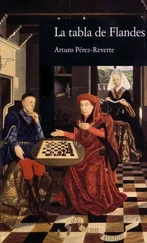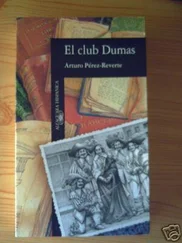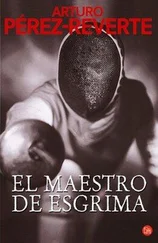Arturo Pérez-Reverte - The Sun Over Breda
Здесь есть возможность читать онлайн «Arturo Pérez-Reverte - The Sun Over Breda» весь текст электронной книги совершенно бесплатно (целиком полную версию без сокращений). В некоторых случаях можно слушать аудио, скачать через торрент в формате fb2 и присутствует краткое содержание. Жанр: Старинная литература, на английском языке. Описание произведения, (предисловие) а так же отзывы посетителей доступны на портале библиотеки ЛибКат.
- Название:The Sun Over Breda
- Автор:
- Жанр:
- Год:неизвестен
- ISBN:нет данных
- Рейтинг книги:5 / 5. Голосов: 1
-
Избранное:Добавить в избранное
- Отзывы:
-
Ваша оценка:
- 100
- 1
- 2
- 3
- 4
- 5
The Sun Over Breda: краткое содержание, описание и аннотация
Предлагаем к чтению аннотацию, описание, краткое содержание или предисловие (зависит от того, что написал сам автор книги «The Sun Over Breda»). Если вы не нашли необходимую информацию о книге — напишите в комментариях, мы постараемся отыскать её.
The Sun Over Breda — читать онлайн бесплатно полную книгу (весь текст) целиком
Ниже представлен текст книги, разбитый по страницам. Система сохранения места последней прочитанной страницы, позволяет с удобством читать онлайн бесплатно книгу «The Sun Over Breda», без необходимости каждый раз заново искать на чём Вы остановились. Поставьте закладку, и сможете в любой момент перейти на страницу, на которой закончили чтение.
Интервал:
Закладка:
“I have a letter for you, Íñigo.”
Surprised, I looked up at Captain Alatriste. He was standing at the entrance to the hut we had constructed of blankets, fascines, and mud, where I was spending time with some of my comrades. He was wearing his hat and had thrown his frayed wool cape around his shoulders, its hem slightly lifted by the sheath of his sword. The broad brim of his hat, the heavy mustache and aquiline nose, accentuated the leanness of his weathered face, now unnaturally pale. He had not been in good health for several days, due to some foul water—our bread was moldy as well, and meat, when we had it, was full of worms—that had set his body on fire and poisoned his blood with fever. The captain, nonetheless, was no friend to bloodletting or purges; he always said those measures killed more often than they cured. So he was just returning from the camp of the sutlers, where an acquaintance who acted as both barber and apothecary had brewed a concoction of herbs to lower his fever.
“A letter for me?”
“So it seems.”
I left Jaime Correas and the others and, brushing the dirt from my breeches, went outside. We were far out of range of the walls, near the palisade where we kept the carts and dray horses, and close to certain ramshackle hovels that served as taverns when there was wine, and as brothels with German, Italian, Flemish, and Spanish women for the troops. It was a favorite place for us mochileros to forage for food, with all the cunning and mischief our calling and our youth lent us as we sought ways to live in comparative comfort. It was rare that we did not return from our pilfering with two or three eggs, some apples, tallow candles, or some useful object we could sell or trade. With such industry I offered some succor to Captain Alatriste and his comrades, and when I had a real stroke of luck I bowed to my own pleasure, which might include a visit, along with Jaime Correas, to La Mendoza’s shack, where, since the conversation between Diego Alatriste and the Valencian Candau on the banks of the dike, my entry had never been disputed. The captain, who knew what I was about, had discreetly admonished me, saying simply that women who follow soldiers are the source of pustules, pestilence, and sword fights. The truth is that I did not know what the captain’s relations with such females had been in other times, but I can say that never in Flanders did I see him enter a house or a tent with a swan swinging at the entrance. I did learn, it is true, that once or twice, with Captain Bragado’s permission, he had gone to Oudkerk, which was now the garrison of a Burgundian bandera , to visit the Flemish woman I have spoken of elsewhere. It was rumored that on his last visit, Alatriste had exchanged harsh words with the husband, whose arse he had ended up kicking into the canal, and had even had to draw his sword when a pair of Burgundians tried to squeeze into a procession they’d not been invited to join. But since that time, he had not been back.
As for me, my sentiments regarding the captain were beginning to be ambiguous, although I was barely aware of it. On the one hand, I obeyed him implicitly, offering him the sincere devotion that Your Mercies know so well. On the other hand, like any youth growing out of his boyhood, I was beginning to feel the weight of his shadow. Flanders had catalyzed the transformations in me natural for a boy who lived among soldiers and who furthermore had had the opportunity to fight for his life, his reputation, and his king. Also, I had recently been troubled by questions that my master’s silences no longer answered. All of this was making me consider the possibility of enlisting as a soldier, and although I was not yet old enough—it was rare at that time to serve if one was younger than seventeen or eighteen, which meant I would have to lie—somehow I thought that a turn of fortune might somehow facilitate my ambition. After all, Captain Alatriste himself had enlisted when he was barely fifteen, during the siege of Hulst. That had been during the famous exercise conceived to divert the enemy from a planned attack on the fort of La Estrella, when mochileros , pages, and every available servant had marched out armed with pikes, banners, and drums and paraded along a dike, tricking the enemy into taking them for replacement troops. The assault that followed was bloody; so bloody that most of the youths, finding themselves with weapons and their zeal kindled by the battle, ran to back up their masters, courageously jumping into the fire. Diego Alatriste, who at that time was a drummer in the bandera of Captain Pérez de Espila, went with them. Some, Alatriste among them, fought so bravely that Prince Albert, who was already governor of Flanders and was personally overseeing the siege, rewarded them by letting them enlist.
“It came this morning with the post from Spain.”
I took the letter the captain was holding out to me. It was written on fine paper; the seal was intact, and my name was on the front:
Señor don Diego Alatriste * Attention of Íñigo Balboa * In the Bandera of Captain don Carmelo Bragado, of the Cartagena Tercio * Military post of Flanders
My hands trembled as I turned over the envelope sealed with the initials A. de A. Without a word, and feeling Alatriste’s eyes on me, I slowly walked some distance away to where the Germans’ women were washing clothes by a narrow branch of the river. The Germans, like some Spaniards, took as their women former whores who assuaged their desires and also relieved them of the misery of washing soldiers’ clothing. In addition, some sold liquors, firewood, tobacco, and pipes to those who needed them, and I have already written how in Breda I saw German women working in the trenches to help their husbands. Near the makeshift laundry, where a tree that had been felled and trimmed for cutting firewood lay across a large rock, I sat, unable to tear my eyes from those initials, incredulously holding Angélica’s letter in my hands. I knew that the captain was watching me the whole time, so I waited for my heart to stop pounding and then, trying not to reveal my impatience, I broke the seal and unfolded the letter.
Señor don Íñigo: I have had notice of your pursuits, and I am pleased to know that you are serving in Flanders. Believe me when I say that I envy you for that. I hope the rancor you hold for me over the difficulties you must have suffered following our last meeting is not too great. After all, I did one day hear you say that you would die for me. Take it therefore as one of life’s tests, and remember that along with the bad times life can also offer satisfactions such as serving our lord and king or, perhaps, receiving this letter of mine. I must confess that I cannot help but recall you every time I pass by the Acero fountain. However, I understand that you lost the handsome amulet I gave you there—something unpardonable in such an accomplished gallant as yourself. I hope to see you someday here at court bedecked in sword and spurs. Until then, count on my memory and my smile. Angélica de Alquézar
P.S. I rejoice that you are still alive. I have plans for you.
I had finished reading the letter—I read it three times, passing from stupor to happiness, and then to melancholy—and had sat for a long time staring at the folded paper lying on the thick patches that repaired the knees of my breeches. I was in Flanders, at war, and she was thinking of me. There will be occasion—should I still have the desire, and the life, to continue recounting to Your Mercies the adventures of Captain Alatriste as well as my own—to detail the plans Angélica de Alquézar had for my person in that twenty-fifth year of the century, she being twelve or thirteen years old at the time and I on the road to fifteen. Plans that, had I divined them, would have made me tremble with both terror and delirium. I shall tell you here only that her beautiful and evil little head, graced with blue eyes and blond curls, would—for some obscure reason that can be explained only by the secrets that certain women hold in the depths of their souls from the time they are young girls—place my neck and my eternal salvation in peril many times in the future. And she would always do it in the same contradictory manner: coldly and deliberately. Yet I believe that at the same time she sought my misfortune, she also loved me. And that was how it would be until she was taken from me—or until I freed myself from her, God mend me, nor am I sure which was the case—by her early and tragic death.
Читать дальшеИнтервал:
Закладка:
Похожие книги на «The Sun Over Breda»
Представляем Вашему вниманию похожие книги на «The Sun Over Breda» списком для выбора. Мы отобрали схожую по названию и смыслу литературу в надежде предоставить читателям больше вариантов отыскать новые, интересные, ещё непрочитанные произведения.
Обсуждение, отзывы о книге «The Sun Over Breda» и просто собственные мнения читателей. Оставьте ваши комментарии, напишите, что Вы думаете о произведении, его смысле или главных героях. Укажите что конкретно понравилось, а что нет, и почему Вы так считаете.












